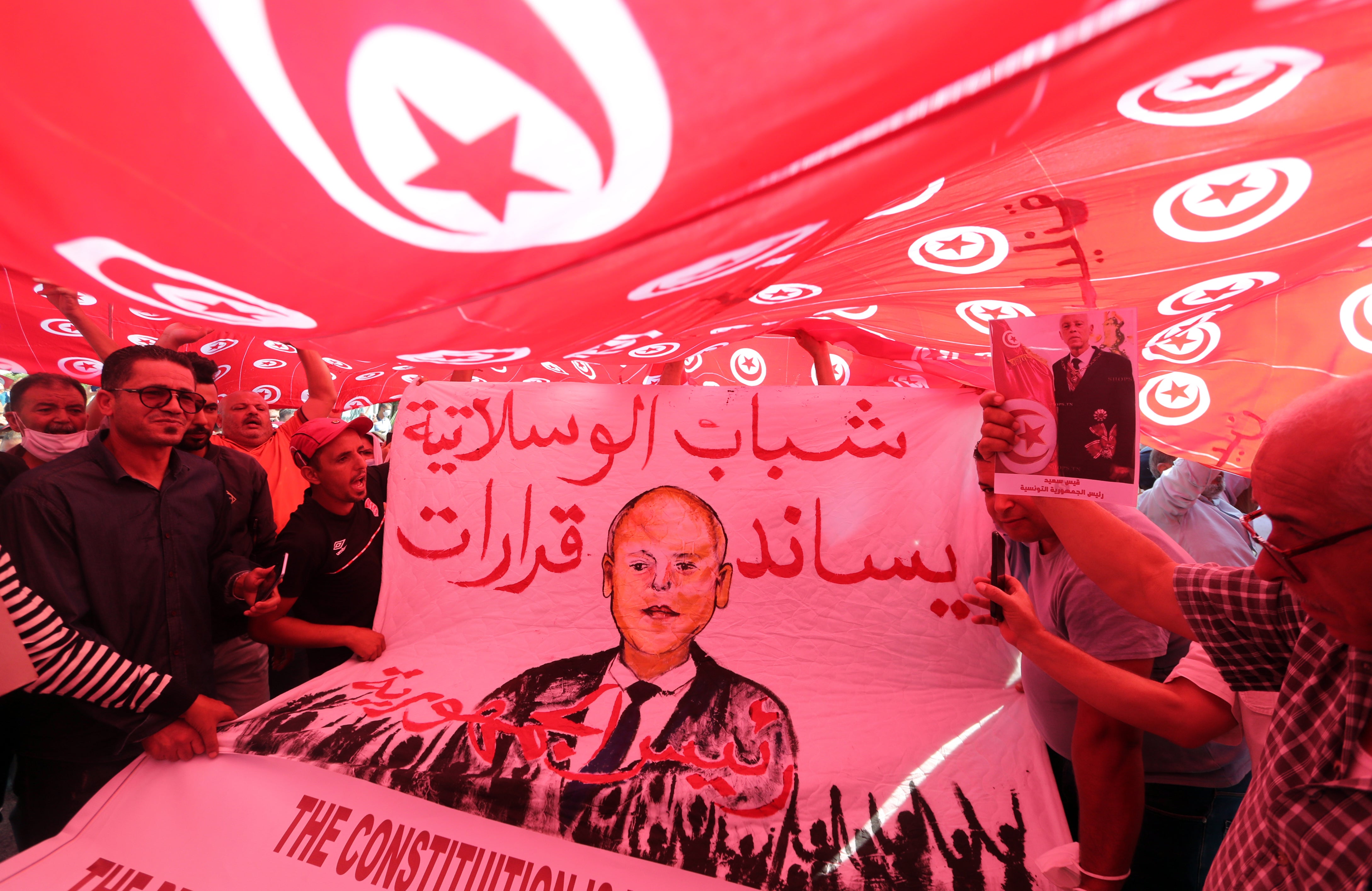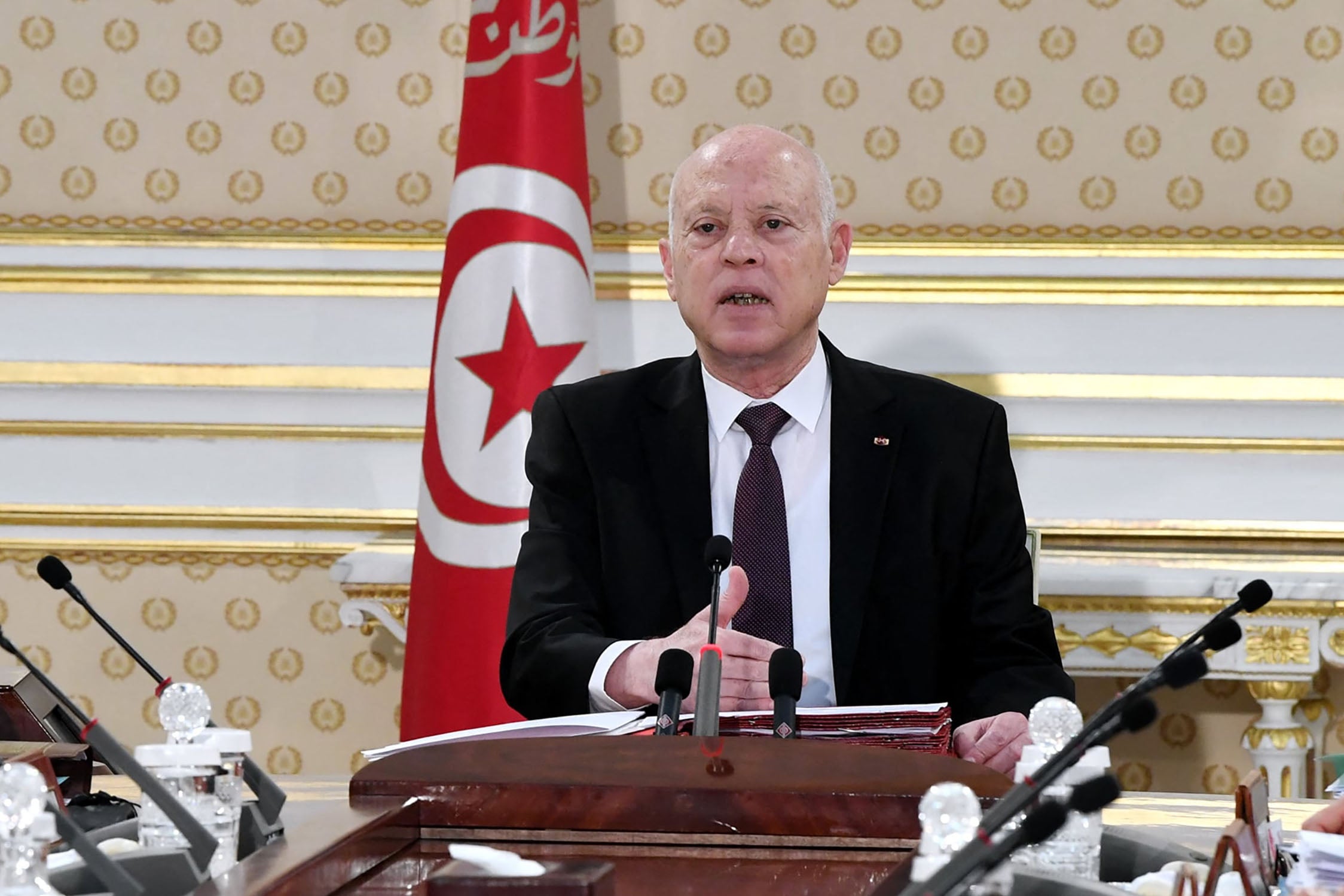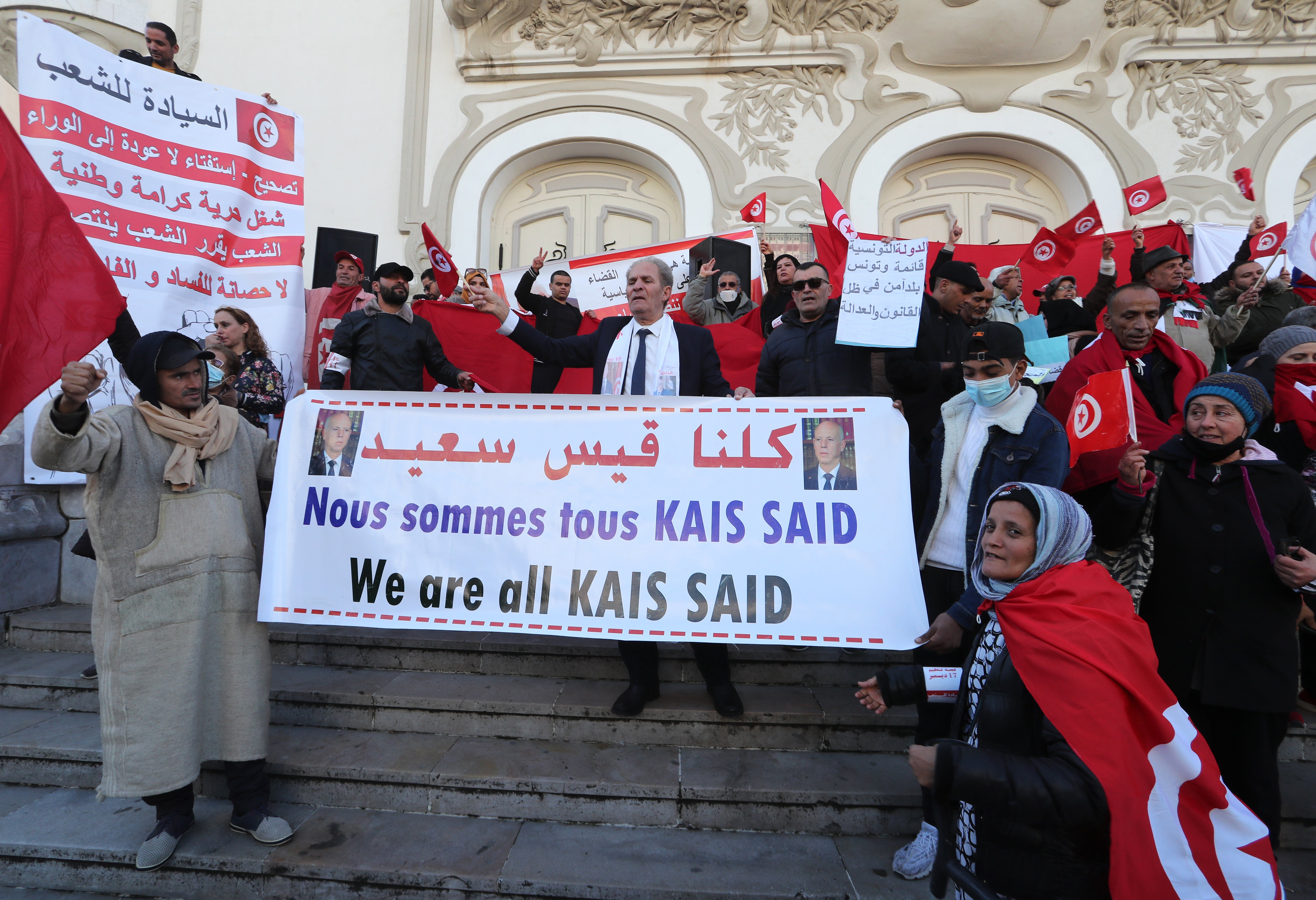Tunisia’s leader tightens his grip but popularity at risk as economy reels
President Kais Saied’s authoritarian shift has not alienated the Tunisian public but he may struggle to maintain support with a worsening economic crisis, writes Simon Speakman Cordall

First came the power grab in July, when Tunisian President Kais Saied sacked the prime minister, suspended parliament and assumed executive authority.
Then followed last week’s sentencing, in absentia, of former leader Moncef Marzouki to four years in prison after he criticised Mr Saied.
For many observers, recent events have confirmed the president’s recent authoritarian shift and raised questions about whether his tightening grip on power risks losing the widespread support he enjoys among the public as the Tunisian economy suffers.
Mr Saied’s rule by decree and dismantling of the political system – a move his critics and rivals have described as a coup – may not be so surprising given that he campaigned in 2019 on an anti-corruption platform and launched tirades against the country’s parties.
In September, he announced he would ignore large swathes of the constitution. Earlier this month, Mr Saied announced that the parliament would remain closed for a year, until a fresh constitution could be agreed, following a referendum.
Such measures, allied to his evident frustrations over the delays in the judicial investigations of some of the country’s leading parties, would all speak to the actions of an aspiring autocrat, which is a cause of concern to advocates of democracy at home and abroad.
Indeed, the sentencing of Mr Marzouki has been condemned in Tunisia by leftists, human rights campaigners, and the vestiges of the shuttered parliament’s blocs and parties.
The protest movement Citizens Against the Coup described it as a “sham trial” and “unfair ruling”, while Tunisia’s moderate Islamist party Ennahda, which has been the target for much of the country’s popular ire, was also quick to denounce the sentencing.
“(It is) a living embodiment of the danger of accumulating powers in the hands of the president of the Republic who has been exerting pressure on the judiciary with the intention of subjugating it to liquidate his political opponents,” Ennahda said in a statement.
Mr Saied, who was previously a professor of constitutional law, could not be reached for comment. The president has rejected accusations that his actions amounted to a coup and said he acted to end protracted political paralysis.
With time, Mr Saied will end up as unpopular as his predecessors
The condemnation of Mr Marzouki’s treatment has no bearing on the basis for much of Mr Saied’s support, namely the anger many in Tunisia feel towards the political class that openly fiddled as the country burnt. The president’s recent interventions have proved broadly popular among a public disillusioned by years of economic woes and political gridlock.
While it has been hailed as one of the few democracies in the region, Tunisia has in fact lurched from crisis to crisis since the 2011 Arab Spring, which saw the overthrow of long-time leader Zine El Abidine Ben Ali.
A stroll through any of the overlooked neighbourhoods that dot the country is enough to lend substance to the anger many feel towards a political system that failed them, and towards the lawmakers they regard as having profited from ignoring their poverty.
Despite the high-level backlash over the sentencing of Mr Marzouki, it is unlikely to dent public support for Mr Saied, who remains the country’s most popular political figure, according to Youssef Cherif, a political analyst and head of the Columbia Global Centre in Tunis, an outpost of the US university.
“Tunisians keep blaming his predecessors for their troubles and many believe that his predecessors are hindering his reforms, still giving him (Mr Saied) the benefit of the doubt. Some are starting to get disenchanted though, but they are still a minority" he told The Independent.
“At the end of the day, most Tunisians want an economic overhaul, whereas Saied is offering slow political change. With time, he will end up as unpopular as his predecessors,” Cherif added.

While opinion polls in Tunisia are widely viewed with scepticism, a survey by Emrhod Consulting of 1,150 people found that public satisfaction with Mr Saied’s performance as president slipped from 82 per cent to 72 per cent between August and December.
That approval rating looks set to fall further unless the flailing economy is addressed with some urgency.
Tunisia is reeling from the pandemic, which saw its vital tourism sector and ancillary industries, estimated to account for some 14 per cent of GDP, all but wiped out. Overall, the unemployment rate stands at 18 per cent, up from 13 per cent a decade ago, according to government statistics.
Last year saw the country’s economic output contract by almost nine per cent, and worse could be yet to come as the world attempts to control the spread of the latest Omicron Covid variant. Tunisia’s healthcare system has already been pushed to the brink by Covid.
“Life is more expensive now,” a middle-aged shopkeeper sitting outside his electrical store said earlier this month.
“It was better before the revolution. The economy is the greatest problem,” the man, who did not wish to be named, told The Independent. “An economic vision is what’s important. A good economy provides the basis for political reform.”

Yet such reform will prove challenging, given that Tunisia’s current financial and social circumstances are considerably more complicated than those facing the country’s early post-revolutionary governments, according to independent economist Radhi Meddeb.
“The authorities have been slow to deal with the economy,” he says. “There is an impression of déjà vu: the conviction that politics is a prerequisite [for reform]. The hardest part, over the coming weeks, will be [to determine] the ownership by all stakeholders of the reforms process and what sacrifices will be shared.”
The solutions for Mr Saied and his freshly appointed government seem no different than for any of his predecessors.
According to documents seen by Reuters, current plans focus on increasing fuel and electricity prices, freezing public sector pay, and imposing new taxes. Measures that are guaranteed to be opposed by the country’s powerful general trade union, and certain to cause the most pain among the president’s heartlands in Tunisia’s marginalised communities.
How they will react to the privations of winter and the impact of the Omicron variant remains to be seen.






Join our commenting forum
Join thought-provoking conversations, follow other Independent readers and see their replies
Comments